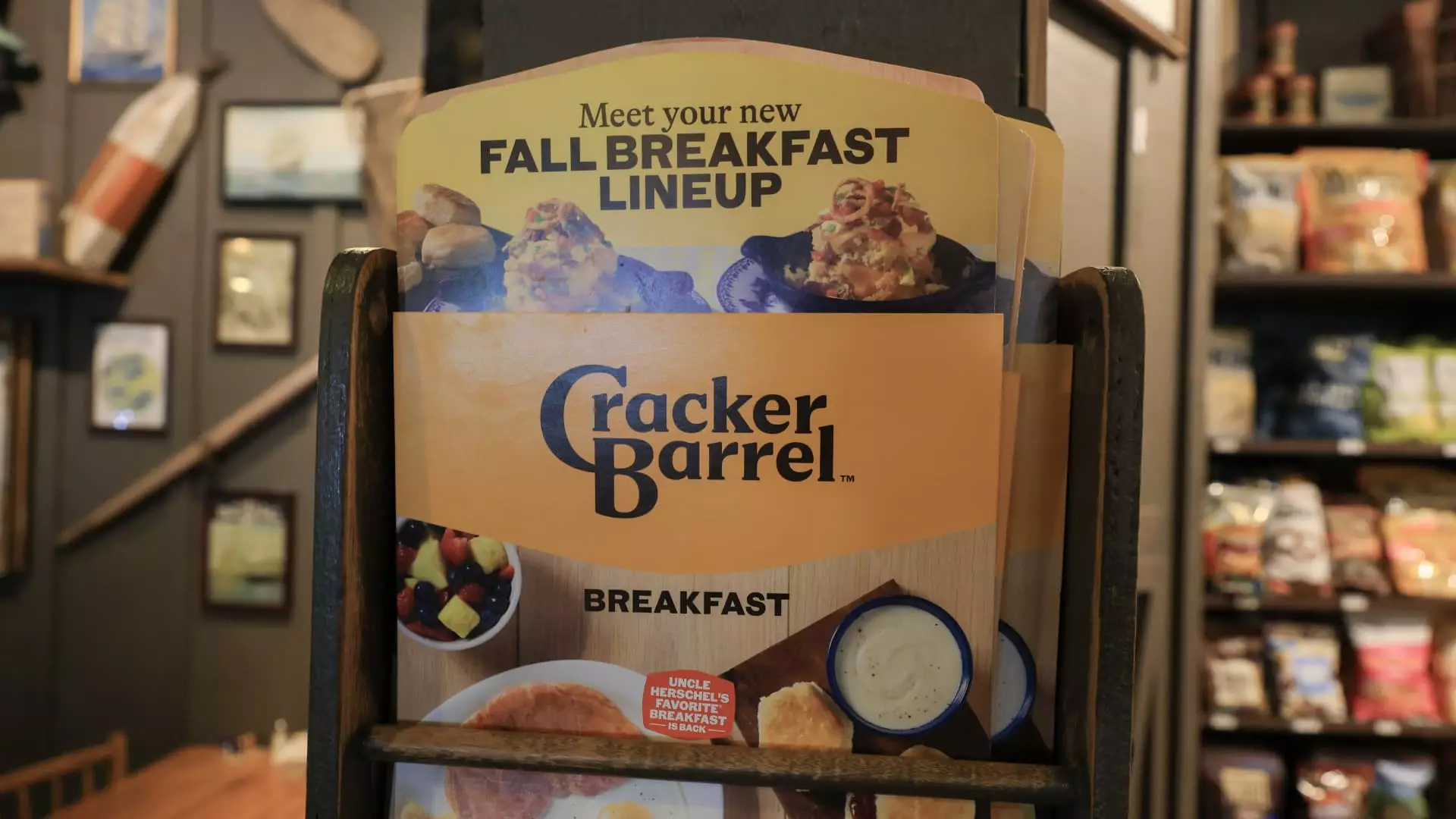Cracker Barrel, an enduring symbol of rustic Americana, recently found itself embroiled in controversy following its decision to overhaul its iconic branding elements. The company’s new logo—stripped of its traditional man leaning against a barrel and the phrase “old country store”—reflects a deliberate move toward a more minimalist and ostensibly modern aesthetic. Yet, beneath this superficial makeover lies a deeper issue: the perceived abandonment of cultural authenticity and traditional values that once defined the brand.
This decision to simplify the logo and update imagery signals a troubling trend among traditionalist brands eager to appear progressive in today’s socially conscious climate. However, at what cost? Is Cracker Barrel sacrificing its identity to chase fleeting social approval? The removal of the classic Americana motifs could be seen as not only an aesthetic shift but as a symbolic betrayal of the brand’s roots, undermining its appeal to consumers who cherish the values of hard work, community, and national pride.
Brand Refresh or Cultural Capitulation?
The company’s claimed motivation—to resonate with contemporary consumers and reflect its “strategic transformation”—raises eyebrows among critics. The target of this transformation is unclear: Is it genuine innovation aimed at broadening appeal, or a capitulation to the cultural winds of diversity and inclusion initiatives? The assertion by leadership that “our story hasn’t changed” clashes sharply with visible signs of change that appear to prioritize modern ideals over traditional American virtues.
Indeed, the social media backlash, especially from conservative circles, reveals a sense of betrayal and skepticism. Donald Trump Jr. and other critics argue that the rebranding signifies a desire to erase America’s cultural identity—a retreat from the values which made Cracker Barrel a symbol of rustic American pride. From this perspective, the change is perceived not as an embrace of progress but as an abandonment of American heritage, subordinated to corporate virtue-signaling and political correctness.
Degradation of Authenticity in the Realm of Corporate Branding
Beyond the logo, the broader remodeling of physical spaces within Cracker Barrel’s restaurants signals additional erosion of the brand’s core identity. Many patrons lament the shift toward a sterile, modern design that strips the cozy, country charm that previously distinguished the chain. These remodels—while likely aimed at attracting a younger, more diverse clientele—risk alienating the core demographic that treasured the authenticity of traditional country hospitality.
The tension between modernization and preservation is at the heart of this controversy. Corporate leaders like CEO Julie Felss Masino emphasize that upgrades are aimed at making spaces “lighter, brighter, and more welcoming,” but for many, this approach dilutes the essence of what yielded the brand’s success. Authenticity cannot be distilled into minimalist redesigns or superficial branding updates; it is rooted in history, community bonds, and shared cultural experiences—elements that are proving difficult to preserve amid relentless push for modern relevance.
The Political and Cultural Implications of Corporate Branding Shifts
Cracker Barrel’s controversy is emblematic of a broader phenomenon: the intersection of corporate branding and cultural identity. The backlash from social media and political figures underscores the fragility of American traditionalism in the face of corporate efforts to appear progressive. Critics view the logo change as part of a wider pattern where companies alter their identities to align with ideologies that may not resonate with their loyal customers.
In this context, the company’s market value—relatively modest at around $1.2 billion—becomes secondary to its cultural symbolism. It highlights how modern branding considerations often clash with deeply held national and cultural identities. For some, the push for diversity and inclusion should not come at the expense of the storied past that built these American brands. For others, embracing change is a necessary evolution. Yet, the core debate revolves around whether this evolution is authentic or merely superficial virtue-signaling.
Ultimately, Cracker Barrel’s recent choices serve as a litmus test for whether American companies can remain true to their roots amid a rapidly changing cultural landscape. The question remains: Will this be a moment of renewal grounded in genuine value or a symbol of capitulation to political correctness that dilutes the essence of American tradition? The jury is still out, but the controversy underscores a wider cultural cleavage—one that challenges companies to balance progress with authenticity.

